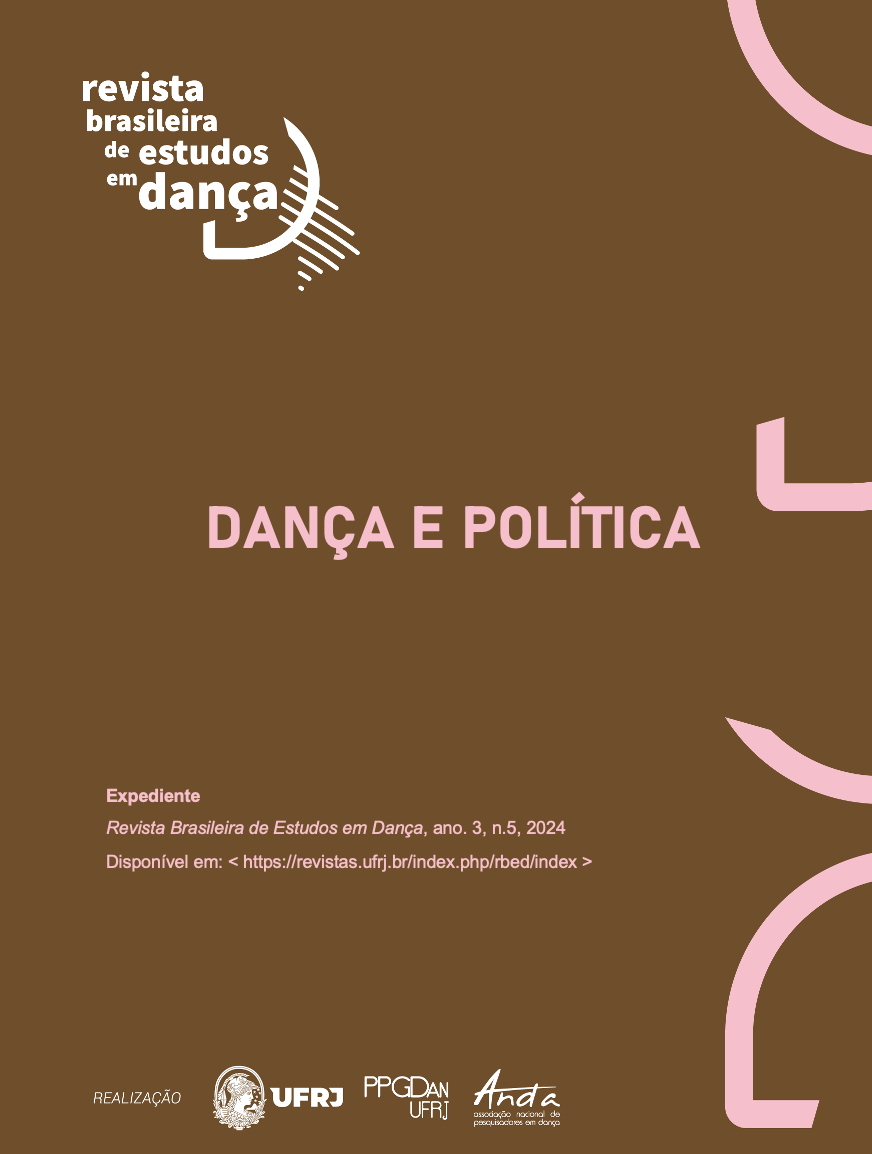The improvisation as a form of insurgency
DOI:
https://doi.org/10.58786/rbed.2024.v3.n5.64031Keywords:
Improvisation; Dance; Body politics; Movement; Cognition.Abstract
This article sets out to reflect on the strategies of improvisation as a potentially insurgent act. By approaching it as a cognitive skill aimed at solving problems, it seeks to draw possible distinctions between actions performed daily and artistically, obviously considering the relationships between bodies and their contexts, in order to observe the fact that cognitive behaviors are not immune to the biosocial order established and constructed by the macrosystem. It also addresses some historical traits to highlight the way improvisation was thought of by Western artistic movements within the area of dance knowledge. And, from the recognition of the epistemological ascendancy of romantic ballet and modern dance in the formation of the dancing body in Brazil, it observes the resilient presence of some of its traits in current artistic productions.
Downloads
References
Rosa Hercoles (CAC/PUCSP)
E-mail: rhercoles@pucsp.br
Eutonista e dramaturgista da dança. Mestrado e doutorado em Comunicação e Semiótica, professora do curso de Comunicação das Artes do Corpo e Vice-líder do Centro de Estudos em Dança (CED), todos vinculados à PUCSP.
Downloads
Published
How to Cite
Issue
Section
License
Authors who publish in the Revista Brasileira de Estudos em Dança are
responsible for the content of signed articles and retain copyright.
They grant the journal the right of first publication with the work simultaneously
licensed under the Creative Commons Attribution-NonCommercial 4.0 License
(Open Archives Initiative - OAI). This feature, used for open-access journals,
allows sharing work for non-commercial purposes and acknowledges
authorship. If the text is later published in another vehicle, the author
must inform that it was initially published as an article in the Revista Brasileira
de Estudos em Dança. Therefore, even if the journal owns the first publication,
authors are entitled to publish their work in institutional repositories or on
their personal pages, even if the editorial process has not been completed.
The journal reserves the right to make normative, orthographic, and grammatical changes to maintain the language standard, respecting the authorial style.

